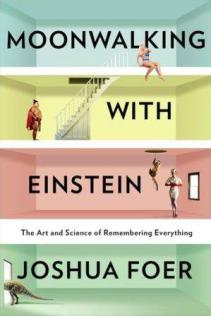 My name is Tyler Leach. I am the Middle School Latin teacher at Baker Demonstration School, which draws many of its students from the Evanston community. While my book choices trace back to my love of language, my hobbies revolve around a love of family, music (listening and playing), food (cooking and dining out), and sport. I am a transplant to the Middle West from the Northeast, and my wife Emily (born and raised in Evanston) and I currently live in Chicago’s Uptown neighborhood with our two sons Henry and Palmer.
My name is Tyler Leach. I am the Middle School Latin teacher at Baker Demonstration School, which draws many of its students from the Evanston community. While my book choices trace back to my love of language, my hobbies revolve around a love of family, music (listening and playing), food (cooking and dining out), and sport. I am a transplant to the Middle West from the Northeast, and my wife Emily (born and raised in Evanston) and I currently live in Chicago’s Uptown neighborhood with our two sons Henry and Palmer.
.
1) Aeneid by Virgil, translated by Stanley Lombardo (19 B.C., 2005)
For those who have never read the Aeneid, Lombardo’s translation makes the text accessible to a modern audience, and the theme of the poem is easily relatable to the story unfolding in modern day Syria. Having attempted to translate Virgil’s work myself, I cannot help but marvel at Lombardo’s keen ability to bring the text to life while all the while remaining true to its classical roots. For anyone who has the time and interest, Lombardo’s translations of the Iliad and Odyssey are real gems, too.
2) Moonwalking with Einstein: The Art and Science of Remembering Everything by Joshua Foer (2011)
 This is an enjoyable read and provides some approachable tips and obtainable tricks for sharpening your memory skills. I find myself referencing Foer’s work regularly while talking to my students about how to approach memory work.
This is an enjoyable read and provides some approachable tips and obtainable tricks for sharpening your memory skills. I find myself referencing Foer’s work regularly while talking to my students about how to approach memory work.
3) Proust and the Squid: The Story and Science of the Reading Brain by Maryanne Wolf (2007)
There’s something undeniably enjoyable to me about reading about reading. While some of the scientific aspects of Proust and the Squid can require some careful re-reading, the narrative has drawn me back for multiple re-reads of the entire text.
4) Garner’s Modern American Usage by Bryan A. Garner (2003)
“The reality I care about most is that some people still want to use the language well. They want to write effectively; they want to speak effectively. They want their language to be graceful at times and powerful at times. They want to understand how to use words well, how to manipulate sentences, and how to move about in the language without seeming to flail. They want good grammar, but they want more: they want rhetoric in the traditional sense. That is, they want to use language deftly so that it’s fit for their purposes. This book is for them.” –Bryan A. Garner
